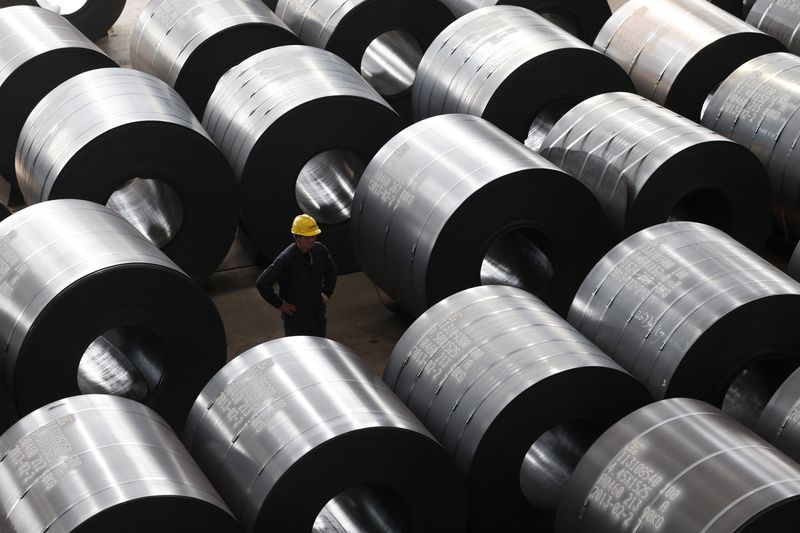By Maytaal Angel and Tom Miles
LONDON/GENEVA (Reuters) - U.S. President Donald Trump's plan to impose steel import tariffs for national security reasons would likely trigger a swift "safeguard" action by the European Union, political and industry sources said.
Resorting to a Cold War-era law, Trump has initiated a 'Section 232' review of the U.S. steel industry that allows for the imposition of tariffs or quotas on imports if they are found to threaten national security.
The move has been widely criticised by diplomats who warned it risks sparking retaliatory action and undermining the global trading order if national security becomes an accepted excuse to break global trade rules.
Challenging the plan through the World Trade Organization's dispute system would take years. However, the WTO also allows countries to impose an emergency "safeguard" tariff to protect against a sudden, unforeseen and damaging import surge.
"I understand that's the direction they’ll go in... That's what they want to do," a Brussels-based trade lawyer said.
The U.S. Commerce Department could recommend Trump's tariff plan this week, though American manufacturers, energy companies and retailers reliant on cheap steel are also understood to be lobbying hard against it.
While the U.S. tariffs would be aimed primarily at China, the EU fears steel headed for the United States would be redirected to its shores.
JOB LOSSES
Steel is the second biggest industry in the world after oil and gas. With Trump's support based largely in rust-belt states where job losses are widely blamed on subsidised steel from China, the matter has risen fast up the political agenda.
An EU source said the problem with taking the matter to the WTO was that it would probably take at least three years to resolve.
"But I believe there are also possibilities in the Safeguard Agreement. Read the Safeguard Agreement," the source said. "I can tell you that our people are looking actively, and yes, there are ways to respond more quickly than after three years."
According to the WTO's rules, in critical cases where delay would cause damage that would be difficult to repair, a member state can impose tariffs not just to cope with an import surge, but to avert the threat of such a surge.
Unlike other trade defences such as anti-dumping or anti-subsidy tariffs, safeguard measures are not aimed at one country, but have a global effect.
When former U.S. President George Bush imposed steel tariffs of up to 30 percent in 2002, the EU swifty responded with safeguards. Alongside China, Japan, South Korea, Norway, Switzerland, Brazil and New Zealand, the EU also took the case to the WTO and eventually forced a U.S. climbdown.
Studies by the free trade lobby group, the Consuming Industries Trade Action Coalition (CITAC), found that 200,000 workers in U.S. manufacturing lost their jobs as a result of the 2002 steel tariffs.
European steel association Eurofer said it was monitoring steel import flows as usual, but noted that as regards safeguards, the "Commission is itself making relevant noises in this direction, and they have the means to launch investigations of their own if necessary".
